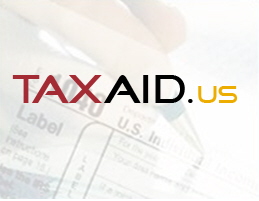

| Tax Services | |||||||
| Offshore Compliance | |||||||
|
|||||||
| TAXAID.us | |||||||
| Great Results | |||||||
| Taxaid Blog | |||||||
| Contact Us | |||||||
|
|
|||||||
|
|
|||||||

|
Call Toll Free 24/7
888-8TAXAID
|
||||||
|
|||||||
 |
|||||||
|
7. Voluntary Disclosure is the Answer!
Increased information exchange At the same time, tax payers are seeing many countries, especially the US and those in the EU, making greater use of tax treaties and tax information exchange agreements, and engaging in more spontaneous disclosures of data from one taxing authority to another. With the post 9/11 focus on terrorism and money laundering and the increasing consensus that tax and fiscal crimes are just as serious as other offences, countries are exchanging tax information more freely. The US, Canada, the UK, Japan and Australia have established the Joint International Tax Shelter Information Centre (JITSIC), aimed at sharing information on tax shelters and on the professionals and financial institutions that plan and promote them. The purpose is to enable tax authorities in these five nations to exchange details on complex tax avoidance structures, and to enable more rapid and coordinated enforcement responses. Meanwhile, bank secrecy in tax haven jurisdictions is becoming an increasingly non-viable Even such formerly secret locales as Switzerland, the Isle of Man and the Jersey Isles are responding to properly-framed requests from other countries under applicable information exchange provisions, unimpeded by legal challenges from the businesses and individuals affected. As an outgrowth of the LGT matter, moreover, the EU and GECD have increased pressure on countries like Liechtenstein, Monaco and Andorra to become more transparent. Tax enforcement officials are well aware of the deterrent effect gained by prosecuting a few selected lawyers or accountants for participating in abusive schemes - witness the indictments of former professionals from KPMG, Ernst & Young and Sidley, Austin, Brown & Wood. And it is common knowledge that some of the largest banks in the world remain involved in a number of continuing criminal tax shelter investigations. The authorities can be expected to apply the same template to enquiries into allegedly abusive offshore structures. Voluntary disclosures In spite of all this, there is time for fast-acting taxpayers to hire qualified professionals to insulate themselves from criminal prosecution. Nearly every tax authority worldwide has a voluntary disclosure policy of one kind or another. The terms and approaches of such policies differ from country to country. Most such policies, though, promise leniency, if not outright amnesty, for businesses and individuals that come forward voluntarily and in good faith to correct prior tax misdeeds. In the US, a taxpayer is under no legal obligation to correct prior wrongful filings. Nor are tax practitioners ethically obligated to insist that a client undertake such action. However, US tax practitioners often advise clients to take advantage of a longstanding IRS Voluntary Disclosure Policy, under which the IRS generally will not seek criminal prosecution of anyone - company, individual or professional - who comes forward and satisfies the policy's criteria. While the IRS often points out, and the policy itself specifies, that it does not provide full immunity, the IRS historically has welcomed voluntary disclosures, and there is no reported case of a true voluntary disclosure blowing up into a criminal prosecution. In practical terms, the policy presents an opportunity for anyone concerned about a potential US tax investigation to eliminate the risk of a future criminal proceeding.In the US, an effective voluntary disclosure has five components:
Legal and tactical issues Every taxpayer's case is different, and a number of issues often arise in each case. One such issue is how many years the taxpayer must correct. In many cases, practitioners recommend going back six years, as that is the statute of limitations for criminal tax prosecutions in the US. In other cases, for a variety of reasons, a taxpayer may correct filings for fewer years. A second issue is the manner of the disclosure itself. Depending on the facts of the case, taxpayers might make an effective voluntary disclosure by filing amended (or delinquent) returns accompanied by payment, or they could surface overtly with IRS officials to provide relevant facts to obtain their view that the Voluntary Disclosure Policy would apply. While many tax practitioners recommend a strategy of simply filing the appropriate returns, in more complicated cases or those involving substantial amounts (over $250,000 of tax liability), a practitioner might suggest making affirmative contact with the IRS. Such a contact might first be on a hypothetical basis to sound out IRS representatives on the repercussions of a significant disclosure. But the IRS will not grant voluntary disclosure status unless the names of the relevant taxpayers are eventually provided. Third, complex tax reporting and accounting issues often arise from the nature and structure of the assets and income at issue. The presence of foreign corporations, foreign trusts, IBCs, foundations or stiftungs, personal estates, or nonprofit entities can complicate the analysis of how a taxpayer might correct returns and filings in earlier years. If the conduct involves wages or Withholding issues, additional complexities arise. The exact nature of the assets and even technicalities such as currency exchange calculations will require accounting analysis. Fourth, there are often questions regarding the separate US Treasury form (Form 90-22.1, the FBAR), an annual information return required of US persons that control or have interests in foreign financial accounts. There are separate rules on the filing of this form for individuals and for businesses. A complete voluntary disclosure will require analysis of these matters as well. Lastly, the IRS policy does not protect against civil penalties. These penalties can be significant in cases where information returns on foreign corporations, estates, trusts or foundations may be involved. Having said this, the IRS is often more lenient in voluntary disclosures because the taxpayer has shown good faith in coming forward and making a complete and truthful disclosure. Complications aside, given the increasing US enforcement focus on offshore accounts and business structures, the IRS's Voluntary Disclosure Policy provides an opportunity for companies to make their peace at what is often (relatively speaking) a reasonable price, especially when the benefits include avoiding a criminal inquiry. Policies in other countries afford the same chance to clean up matters before trouble arises. It would behove taxpayers worldwide, to review their tax-related structures, accounts and holdings, to ascertain whether it would make sense to consider a voluntary disclosure. This is especially the case for valued company management who may have undeclared assets in tax haven countries and for families and individuals about secret accounts or offshore business structures, which may be perceived as abusive. Prudent action now could pre-empt potentially serious legal trouble down the road. |
